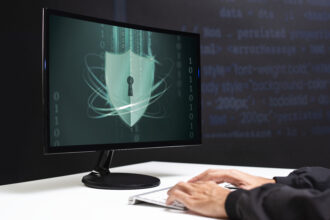In the digital era, where our lives are increasingly intertwined with technology, cybersecurity is no longer just a concern for organizations—it’s a vital necessity for individuals as well. From personal emails and online banking to social media and smart home devices, we are constantly exposed to cyber threats. Protecting your digital life means taking proactive steps to secure your information and digital presence from hackers, data breaches, and malicious software.
Understanding the Importance of Cybersecurity
Cybersecurity is the practice of protecting networks, systems, and data from cyberattacks. These attacks can result in identity theft, financial loss, and even damage to one’s reputation. With the growing sophistication of cybercriminals, individuals must stay informed and vigilant about the security measures they adopt in daily digital interactions.
While large-scale breaches often make headlines, individual users are also prime targets. A single lapse, such as clicking on a suspicious link or using a weak password, can lead to serious consequences. This is why cybersecurity awareness and implementation of best practices should be a top priority for everyone.
Use Strong and Unique Passwords
One of the simplest yet most effective ways to enhance cybersecurity is by using strong, unique passwords for every account. A strong password typically includes a combination of uppercase and lowercase letters, numbers, and special characters. Avoid using personal information like birthdays or names, as these can be easily guessed or found online.
It’s also crucial to use different passwords for different accounts. If one password is compromised, it won’t lead to a domino effect of breached accounts. Consider using a reputable password manager to keep track of your passwords securely without the need to memorize them all.
Enable Two-Factor Authentication (2FA)
Two-factor authentication adds an extra layer of security to your accounts. In addition to your password, 2FA requires a second form of verification, such as a code sent to your phone or a biometric scan. This makes it significantly harder for unauthorized users to gain access, even if they manage to steal your password.
Many popular services, including email providers, social media platforms, and financial institutions, offer 2FA. Enabling it is a quick and effective way to significantly improve your cybersecurity posture.
Keep Your Software and Devices Updated
Cybercriminals often exploit vulnerabilities in outdated software and operating systems. Regularly updating your devices ensures that you receive the latest security patches and improvements. This applies to everything from your computer and smartphone to smart home gadgets and Wi-Fi routers.
Turn on automatic updates whenever possible to reduce the risk of overlooking important updates. Additionally, uninstall any software or applications you no longer use, as these can become weak points in your digital defenses.
Be Cautious with Emails and Links
Phishing attacks, where attackers trick users into clicking on malicious links or providing sensitive information, are a common method of cyber intrusion. Always scrutinize unexpected emails, especially those requesting personal or financial information. Look for spelling errors, suspicious links, and sender addresses that don’t match the official domain.
If in doubt, contact the organization directly using verified contact details instead of clicking on links within the email. It’s better to take a moment to verify than to fall victim to a scam.
Secure Your Wi-Fi Network
Your home Wi-Fi network is a gateway to all your connected devices. Leaving it unsecured or using a default password makes it an easy target for cybercriminals. To protect your network, change the default administrator credentials, use a strong Wi-Fi password, and enable WPA3 encryption if your router supports it.
Consider hiding your network’s SSID (Service Set Identifier) to make it less visible to outsiders. Additionally, set up a separate guest network for visitors to prevent them from accessing your main devices.
Be Mindful of Public Wi-Fi
Public Wi-Fi networks, such as those in cafes, airports, and hotels, are often unsecured and vulnerable to interception. When using public Wi-Fi, avoid accessing sensitive information or logging into critical accounts unless you’re using a Virtual Private Network (VPN).
A VPN encrypts your internet connection, making it much harder for attackers to snoop on your activities. If you frequently use public Wi-Fi, investing in a reliable VPN service can be a smart cybersecurity move.
Practice Safe Browsing Habits
Not all websites are created equal, and visiting untrusted or suspicious sites can expose you to malware and phishing attacks. Stick to websites that use HTTPS (indicated by a padlock icon in the address bar), and avoid downloading files or software from unknown sources.
It’s also wise to limit the amount of personal information you share online. Oversharing on social media can provide cybercriminals with valuable clues for social engineering attacks.
Use Antivirus and Anti-Malware Tools
A good antivirus program serves as a crucial line of defense against various forms of malware, including viruses, trojans, ransomware, and spyware. Keep your antivirus software updated and run regular scans to detect and remove potential threats.
Many security suites also offer additional features such as real-time protection, firewall controls, and secure browsing extensions. While no tool is 100% foolproof, combining them with responsible online behavior significantly improves your cybersecurity.
Back Up Your Data Regularly
Data loss can occur due to cyberattacks, hardware failures, or accidental deletion. Regular backups ensure that your important files are recoverable in case of an emergency. Use both cloud-based solutions and external hard drives to maintain copies of your data.
Automate your backups to run on a schedule so you don’t have to remember to do it manually. This proactive step can save you from devastating losses in the event of a cybersecurity incident.
Educate Yourself and Others
Staying informed about the latest cyber threats and security tips is key to maintaining strong defenses. Follow reputable cybersecurity blogs, attend webinars, or take online courses to boost your knowledge. The more you understand, the better equipped you’ll be to recognize and prevent potential attacks.
Encourage family members, friends, and colleagues to adopt cybersecurity best practices as well. A collective awareness can help build a safer digital environment for everyone.
Limit App Permissions and Review Privacy Settings
Many apps request access to data and device features that may not be necessary for their function. Review and limit app permissions to protect your personal information. Check your privacy settings on social media and other platforms to control what information you’re sharing and with whom.
Being selective about the apps you install and vigilant about permissions helps prevent data leaks and unauthorized access to your information.
Conclusion
Cybersecurity is an ongoing responsibility that requires constant attention and proactive behavior. By implementing best practices such as using strong passwords, enabling two-factor authentication, updating software, and practicing safe browsing, individuals can significantly reduce their risk of falling victim to cyber threats. Protecting your digital life not only safeguards your personal information but also contributes to a safer and more secure internet for all.
Investing time and effort in cybersecurity measures today can prevent serious problems tomorrow. Stay informed, stay secure, and empower yourself with the knowledge needed to thrive in the digital world.











